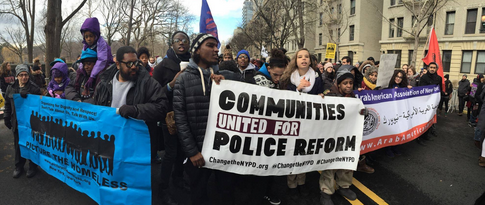Photos: Twitter
(Washington, D.C.) —The private “bounty hunter” enforcement scheme of Texas’ S.B. 8 abortion ban law, if left to stand by the U.S. Supreme Court, would open the door for state and local governments to develop similar schemes that would undermine other fundamental civil rights while eviscerating the ability of citizens to challenge constitutional violations, according to an amicus brief filed Wednesday by the Lawyers’ Committee for Civil Rights Under Law and 11 other civil rights organizations.
The groups, represented the Lawyers’ Committee, and Paul Weiss LLP, argue that allowing Texas to delegate the enforcement of the abortion ban to the general public is a brazen attempt to circumvent the Fourteenth Amendment and the U.S. Constitution by shielding the state from liability.
In Whole Woman’s Health v. Jackson, the high court will consider the validity of the private bounty hunter enforcement scheme in Texas’s S.B. 8, in which the general public is incentivized with money damages of at least $10,000 to sue anyone who assists in obtaining the constitutionally protected right to an abortion. The bill was purposely designed to mobilize private citizens to perpetuate discrimination while giving the state the appearance of “clean hands”. It is an attempt to thwart art the ability of federal courts to stop the abortion ban, which is blatantly unconstitutional, from going into effect. If left to stand, this same scheme could be used to undermine numerous other civil rights protections, ranging from voting rights to desegregation to freedom of speech to marriage equality.
“S.B. 8 weaponizes private discrimination while also threatening to destroy the hard-earned progress of the civil rights, and reproductive rights movements,” said Damon Hewitt, president and executive director with the Lawyers’ Committee for Civil Rights Under Law. “This crafty effort to insulate the state from being sued while actively facilitating the violation of civil rights and liberties is appalling. Anti-democratic lawmakers in Texas are putting in the hands of vigilantes the rights of women and the rights of us all. If this law is allowed to stand, it will provide a road map to tyranny and open the floodgates for states and local governments to violate other civil rights.”
The U.S. Constitution is the supreme law of the land, and no state has the power to nullify federal rights. When states refused to afford federally-protected rights to Black people after the passage of Reconstruction Amendments following the Civil War, Congress enacted a broad remedial statute now known as Section 1983. This statute codified the principle that government actors and those acting under government authority can be sued and held liable for violating federal civil rights. Many of our nation’s landmark civil rights court rulings were decided based upon challenges brought under Section 1983.
Texas’s S.B. 8 enacts a scheme of state-sanctioned private vigilantism to prevent Texans from exercising their fundamental rights—precisely the circumstances that Section 1983 was enacted to address. By deputizing private individuals as enforcers of S.B. 8, Texas lawmakers use deception to allege that state officials cannot be sued under Section 1983.
Read the amicus brief here.







